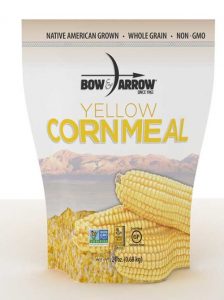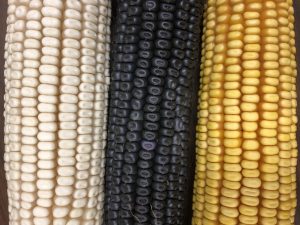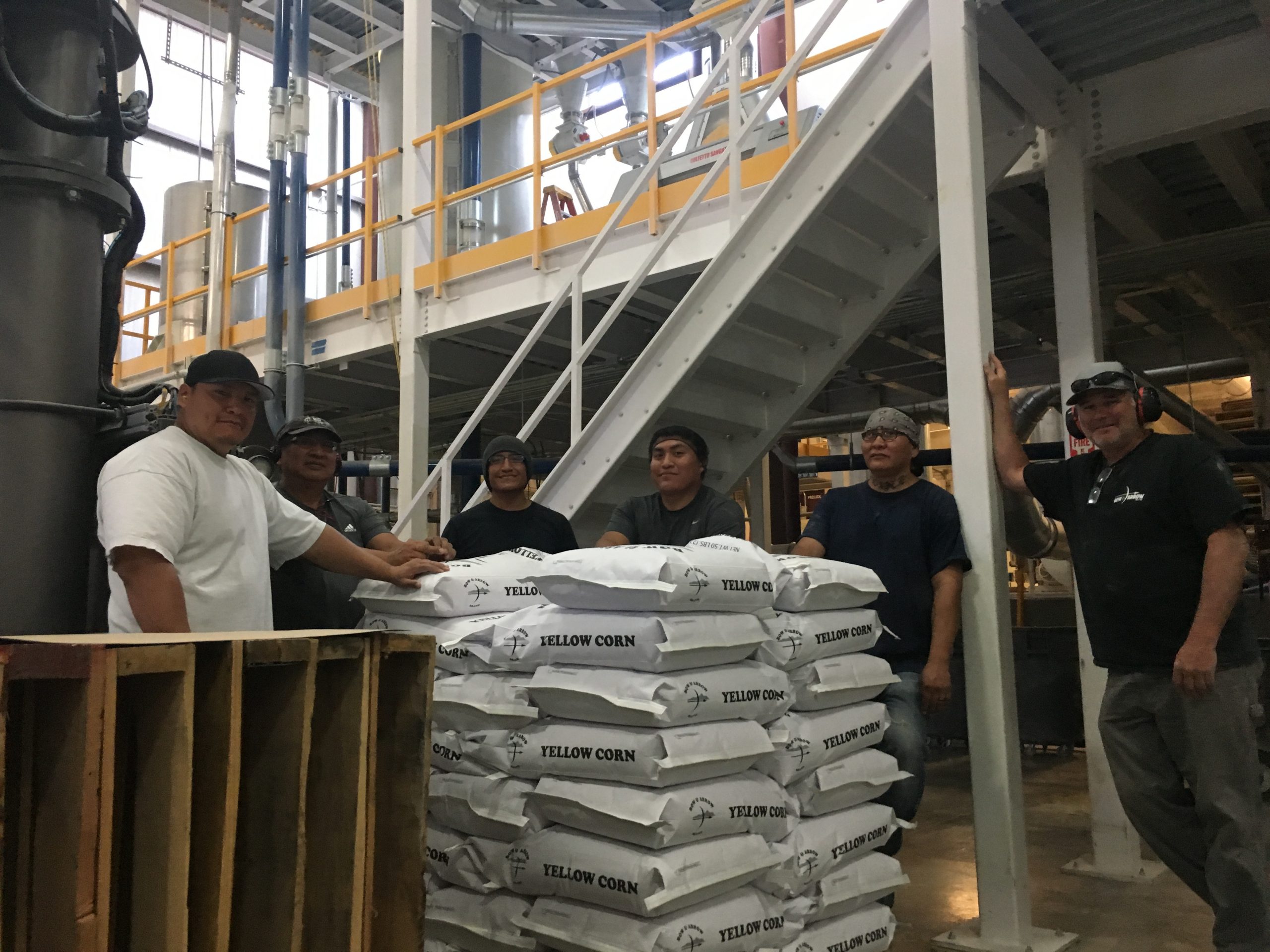Anthropologists suggest that Ute Native Americans occupied the Four Corners area (juncture of Colorado, New Mexico, Utah, and Arizona) as early as 1500 C.E., so it’s no surprise that the Ute Mountain Ute Tribe is successfully growing a value-added corn product on the reservation.
Despite mountainous, high desert conditions, Bow & Arrow Foods LLC, launched in 2014, grows, mills, and packages 2,000 acres of high quality non-GMO corn onsite for retail and bulk/food service customers. A state-of-the-art mill, verified by the Non-GMO Project, can process over 12,000 pounds of 15 different corn products per hour; bin storage is 500,000 bushels. All of the products—yellow, white and blue cornmeal; grits; polenta; yellow corn flour and clean, shelled corn and cracked corn feed—are Non-GMO Project Verified, whole grain, gluten free, and kosher.
“We saw the opportunity to produce non-GMO corn as a specialty product to support the tribe,” said Simon Martinez, operations manager for Ute Mountain Ute Farm and Ranch Enterprise, the parent of Bow and Arrow Foods and three other businesses. “Our land covers over half a million acres. The goal of this company is to provide financially for tribe members.”
History of the land
The tribe sits at the edge of Ute Mountain, between Four Corners Monument and Mesa Verde National Park, in Towaoc, Colorado. The tribe has over 2,000 enrolled members residing both on and off the reservation.
The Bow & Arrow brand launched in 1962 for a cattle raising operation. Ute Mountain Ute Farm and Ranch Enterprise began growing alfalfa and hay over 30 years ago; it now comprises 7,700 irrigated acres: 2,000 for non-GMO corn, 4,500 for alfalfa for dairy feed, and 1,000 for cattle grazing.
“We irrigate through a 39-mile canal from a reservoir, the second largest man-made reservoir in the state,” Martinez said. “Without the Water Rights Settlement Act passed in the 1980s, the farm wouldn’t be possible.”
Pioneer provides the non-GMO yellow and white corn seed. Representative samples are tested for GMOs before planting.
“We employ eight people year-round at the mill, with tribal preference,” Martinez added. “There’s minimal turnover, and we all do multiple jobs, adding to our flexibility.”
The switch to non-GMO corn (from sweet corn, which they couldn’t get to market) came in 2015. Initially designated for food service and industrial use, the company branched into consumer-packaged products.
Non-GMO Verified: worth the work
Britni Skiles, quality manager and sales/marketing support. joined the team as the mill was being built. “We decided not to go organic, but non-GMO we could do. Customer demand—and our preference—for non-GMO product was the motivator.”

Bow & Arrow yellow corn meal
“Although setup with the Non-GMO Project was time-consuming, it’s been worth it to be able to ensure transparency. Being in the desert, there’s more segregation, so avoiding contamination isn’t hard.”
Big bakeries, food service/restaurants, and chip, tortilla, and snack manufacturers purchase a high volume of de-germed yellow corn meal; blue corn meal products are also popular. Feed (hominy, cracked corn) comprises significant sales both directly to farmers and through large co-ops such as Intermountain Farmers Co-op, farm supply stores, and distributors. “We don’t have the money to compete with large companies like Bob’s Red Mill, or penetrate huge chains like Kroger,” Martinez said. “So we sell to co-ops and smaller local groceries in the Four Corners, Wyoming, also California and New York. We’re currently working on getting our grits and polenta into Florida.”
Whole grain corn meal comes in 24-oz retail bags, 25- and 50-lb bags; de-germed corn meal, grits, and polenta are available in bulk. Shelled corn comes in 50-lb bags or 2,000-lb totes.
Creatively surmounting challenges

Bow & Arrow produces corn products from non-GMO white, blue, and yellow corn
Growing corn is not easy in the high desert topography, and climate impacts on water supply are an ever-present threat. Transportation is a limiting factor—the expense of shipping freight long distances has required resourcefulness. “Denver and Phoenix transport is reasonable, but further than that becomes very expensive,” Skiles said. “One solution is to arrange joint shipments.”
Transitioning from a tribal business to a packaged goods producer has been demanding. With strong growth in the past year, Skiles said they would welcome a full-time sales staff and more employees.
The National Corn Growers Association has given three awards to Bow & Arrow; Colorado bestowed a first place award for corn yields in 2015 (over 25.2 million pounds). The mission—to deliver a sustainably sourced product nationwide and grow economic prosperity for the tribe—is being realized, one lot at a time.





